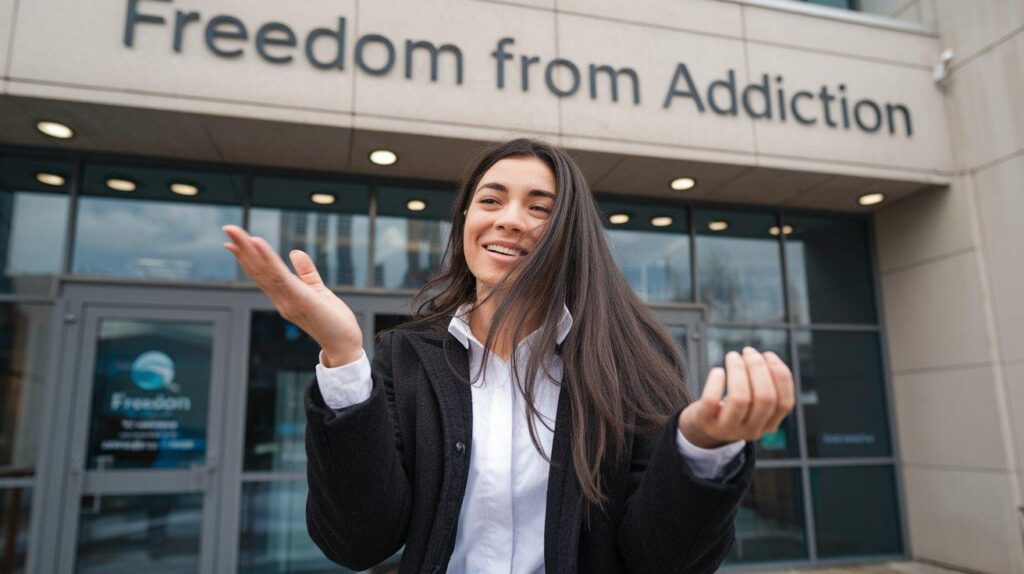Key Takeaways
- Houston offers many types of substance abuse rehab, including inpatient and outpatient programs.
- Choosing the right rehab involves reviewing accreditation, staff qualifications, and treatment approaches.
- Medical detox helps manage withdrawal symptoms safely.
- Therapy and support groups play a critical role in long-term addiction recovery.
- Aftercare services and relapse prevention strategies are essential for maintaining sobriety.
Introduction
Substance abuse recovery becomes more manageable when an individual chooses the appropriate rehab facility. The first essential step toward living sober and healthier is locating a high-quality rehab facility in Houston for yourself or someone you love.
The wide range of treatment choices requires potential patients to understand what makes a good rehab facility. The treatment facilities provide round-the-clock residential care or outpatient programs that enable patients to maintain their regular activities. Your decision will be optimal when you understand the various treatment approaches, medical detoxification practices, and therapeutic requirements.
This guide will walk you through everything you need to know about finding the best substance abuse rehabs near you in Houston.
Understanding Different Types of Substance Abuse Rehab Centers
Healthcare facilities combined with counseling services protect patients from addiction through medical interventions and emotional assistance. The operation of treatment centers varies between different facilities. The choice between rehab types depends on how severe the addiction problem is and what specific requirements a person has, as well as their daily routines.
Inpatient (Residential) Rehab
Inpatient rehab requires patients to live at the facility for a set period, usually 30, 60, or 90 days. This structured environment removes distractions and triggers, allowing individuals to focus entirely on recovery. Inpatient programs typically offer:
- 24/7 medical supervision for safety and comfort.
- A stable, drug-free environment to promote healing.
- Daily therapy sessions to address the root causes of addiction.
This type of rehab is ideal for people with severe addictions or those who have relapsed multiple times.
Outpatient Rehab
Outpatient rehab allows individuals to receive treatment while still living at home. This is a good option for those with mild to moderate addiction who have a strong support system. There are different levels of outpatient care, including:
- Partial Hospitalization Programs (PHPs): Intensive treatment requiring several hours of daily therapy.
- Intensive Outpatient Programs (IOPs): Fewer therapy sessions but still structured and supportive.
- Standard Outpatient Programs: Flexible treatment with counseling sessions a few times per week.
Detox Programs
For those physically dependent on drugs or alcohol, a medical detox program is often the first step. Detox helps the body eliminate substances while managing withdrawal symptoms in a safe, controlled setting.
Sober Living Homes
The facilities create drug-free and alcohol-free living spaces for individuals moving from rehabilitation programs to their living. Support, accountability features, and ongoing guidance are available in these residential facilities for patients during their early recovery journey.
How to Choose the Best Rehab Near You in Houston
Selecting the right rehab center near you in Houston is crucial for long-term success. Here are some key factors to consider:
Accreditation and Licensing
Ensure the rehab center is accredited by organizations like The Joint Commission or CARF (Commission on Accreditation of Rehabilitation Facilities). These accreditations ensure the facility meets high standards of care.
Evidence-Based Treatment Approaches
The best rehab centers use scientifically proven therapies to treat addiction, including:
- Cognitive Behavioral Therapy (CBT) – Helps change negative thought patterns.
- Dialectical Behavior Therapy (DBT) – Focuses on emotional regulation and coping skills.
- Medication-Assisted Treatment (MAT) – Uses medications to reduce cravings and withdrawal symptoms.
Qualified Staff
Search for a rehab facility that maintains medical professionals, therapists, and addiction specialists with valid licenses. Professional experience and the proper qualifications of staff members greatly influence the overall standard of care delivered.
Location Considerations
People choose local rehab centers to stay near their family, but others select facilities outside their state to escape negative influences. Different situations determine which choice will be appropriate for you.
Cost and Insurance Coverage
The cost of rehab treatment remains high, yet numerous facilities enable patients to use their insurance coverage or establish payment plan arrangements. Contact your insurance provider and the rehab center to learn about payment possibilities.
Personalized Treatment Plans
Every person’s addiction journey is unique. The best rehabs provide customized treatment plans that address individual needs, including co-occurring mental health disorders.
The Role of Medical Detox in Addiction Recovery
The human body experiences withdrawal symptoms after drug or alcohol cessation that may become both painful and potentially hazardous to health. Medical detoxification under professional supervision assists patients in managing treatment symptoms.
Common Withdrawal Symptoms
- Anxiety and depression
- Nausea and vomiting
- Tremors and sweating
- Seizures (in severe cases)
How Detox Works
The purpose of prescribed medications during detox is to reduce symptoms and stop potential medical complications. The duration of detox treatment ranges from three to seven days based on addiction substance type and addiction severity. The detox period leads patients toward inpatient or outpatient treatment facilities for ongoing therapy assistance.
Therapy and Support in Substance Abuse Treatment
During detox, the physical part of addiction receives treatment. However, therapy concentrates on treating emotional and psychological elements. Rehab programs provide multiple therapeutic approaches for patients to develop better-coping methods and health-oriented behaviors.
Individual Counseling
Through individual therapy, patients can uncover addiction origins while healing from trauma and learning alternative methods to manage their problems.
Group Therapy
The group sessions create community bonds together with accountability systems. The healing process becomes easier when you share your experiences with others who face the same challenges.
Family Therapy
Addiction affects the entire family. Family therapy helps rebuild trust, improve communication, and strengthen relationships.
Preparing for Rehab: What You Need to Know
The decision to enter rehab requires a major commitment, but proper preparation helps the transition process.
Mental and Emotional Preparation
Recovery requires commitment. Its success depends on maintaining an open perspective and strong commitment to performing necessary tasks.
Packing for Inpatient Rehab
Most rehab centers provide a packing list of allowed items, but essentials typically include:
- Comfortable clothing
- Personal hygiene products (alcohol-free)
- A journal for self-reflection
Informing Loved Ones
Let your family and employer know about your plans. Some workplaces offer medical leave for addiction treatment.
Life After Rehab: Maintaining Sobriety and Preventing Relapse
Recovery doesn’t end after rehab. Aftercare programs help individuals stay on track and prevent relapse.
Support Groups
Many people find ongoing support through Alcoholics Anonymous (AA), Narcotics Anonymous (NA), or SMART Recovery. These groups provide accountability and encouragement.
Continued Counseling
Therapy provides continuous support for people facing life challenges so they can avoid substance usage.
Developing Healthy Routines
The key components for maintaining sobriety include physical activity and planning and selecting positive environmental influences.
Conclusion
Finding the best Houston substance abuse rehab is a crucial step toward recovery. By choosing a high-quality facility with evidence-based treatment, experienced staff, and strong aftercare support, you increase your chances of long-term success.
If you or a loved one is struggling with addiction, don’t wait. Call Virtue Recovery Houston at 725-777-5685 today to take the first step toward a healthier, sober life.
FAQs
What should I look for in a Houston rehab center?
Look for accreditation, experienced staff, personalized treatment plans, and evidence-based therapies.
How long does substance abuse rehab typically last?
Rehab can last 30, 60, or 90 days, with some programs extending longer based on individual needs.
Does insurance cover addiction treatment?
Many insurance plans cover rehab. Contact the rehab center or your provider for details on coverage.
Resources:
https://med.stanford.edu/news/all-news/2020/03/alcoholics-anonymous-most-effective-path-to-alcohol-abstinence.html
https://www.uh.edu/policies/mapps/06-safety/060402/





